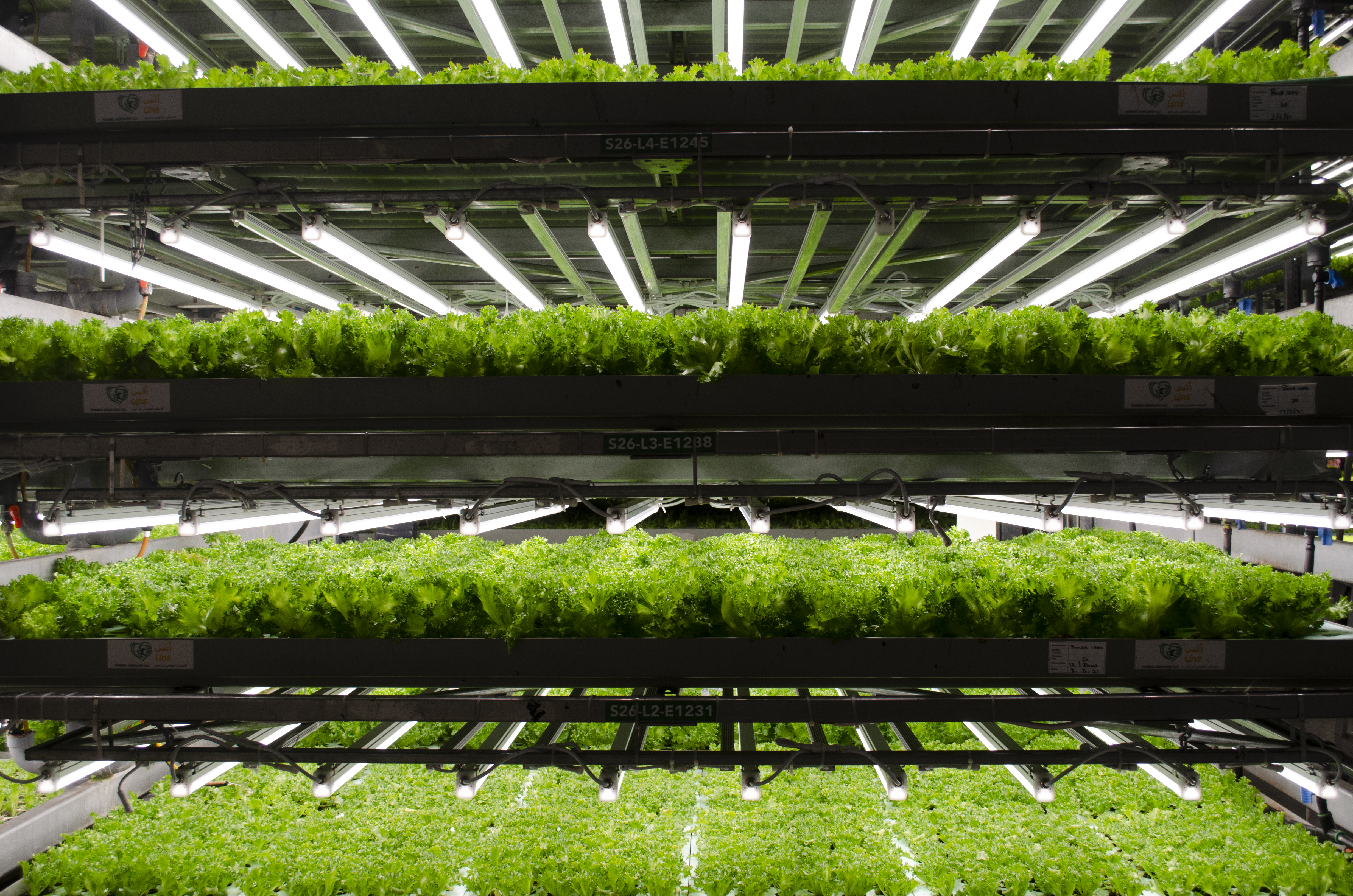Revolutionizing Agriculture in UAE: The Advantages of Vertical Farming

In the face of challenges to food security due to the harsh climate and limited arable land in the UAE, vertical farming has emerged as a viable solution.Unsfarms, a leading vertical farming company in the UAE, has been leveraging the advantages of this modern agricultural technique to revolutionize food production in the country. With year-round crop production, efficient use of space, reduced water usage, increased crop yields, reduced pesticide use, and local food production, Unsfarms provides a sustainable and innovative solution to the challenges of modern agriculture in the UAE. This approach to farming offers numerous benefits and advantages over traditional methods and is poised to impact the future of agriculture in the UAE significantly.
In this article, we will delve into the benefits of vertical farming in the UAE and how it is transforming agriculture in the country.
Year-Round Crop Production :
Vertical farming allows for year-round crop production, regardless of weather conditions, seasons, or climate. Unlike traditional farming, which heavily depends on weather patterns and seasonal changes, vertical farming relies on artificial lighting, temperature control, and irrigation systems to create the ideal environment for plant growth. In UAE, where temperatures can reach extreme highs during the summer months, vertical farming offers a reliable source of fresh produce that is not affected by harsh weather conditions.
Efficient Use of Space:
Vertical farming makes efficient use of space, allowing more crops to be grown in a smaller area. With traditional farming, large tracts of land are required to grow crops, which can be challenging in a country like UAE, where arable land is limited. Vertical farming, conversely, allows crops to be grown in multiple layers, vertically stacked on each other. This means more crops can be grown in a smaller area, increasing land use efficiency. This approach has enabled Unsfarms to increase land use efficiency, resulting in higher crop yields and a more sustainable agricultural system.
Reduced Water Usage:
Vertical farming uses significantly less water than traditional farming methods. Traditional farming requires a large amount of water to irrigate crops and maintain soil moisture levels. This can be a significant challenge in the UAE, where water resources are scarce. Vertical farming, on the other hand, relies on hydroponics, a technique that uses nutrient-rich water to nourish plants without needing soil. This means less water is required overall, making vertical farming more sustainable. Unsfarms has been leveraging these water-saving advantages to revolutionize food production in the country.
Increased Crop Yields:
Vertical farming allows for increased crop yields, thanks to its optimized growing conditions. By controlling factors such as lighting, temperature, and nutrient levels, vertical farming creates the ideal environment for plants to grow and thrive. This means that crops can be grown faster and more efficiently than with traditional farming methods, resulting in higher yields of fresh produce. This approach helps Unsfarms to achieve higher yields of fresh produce, contributing to a more sustainable and innovative food production system in the UAE.
Reduced Pesticide Use:
The UAE has been taking steps to reduce the use of harmful pesticides and promote sustainable farming practices. The country has implemented regulations on the import and use of pesticides and has encouraged the adoption of integrated pest management techniques in agriculture. Unsfarms supports the UAE's mission by utilizing integrated pest management techniques to minimize harmful pesticides in its vertical farming operations, contributing to a more sustainable and environmentally friendly food production system.
Local Food Production:
Vertical farming allows for local food production, which has numerous benefits for the community. With traditional farming, produce must be transported over long distances to reach consumers, which can result in reduced freshness and quality. Vertical farming, on the other hand, allows crops to be grown in urban areas, closer to the point of consumption. This means that produce can be delivered fresh and quickly, reducing the carbon footprint associated with transportation.
In conclusion, vertical farms like Unsfarms has been leveraging the advantages of vertical farming to revolutionize agriculture in UAE, providing a sustainable and innovative solution to the challenges of modern agriculture. As the world population continues to grow and the demand for food increases, vertical farming will likely become an increasingly important part of the global food system, with Unsfarms leading the way in UAE.

